Chemical Reaction
Project-exploration
POLINA CHONI. 2022
I enjoy experimenting with colors and textures. Once I had an idea to explore what color pigments I could get from natural materials that I find in Ukraine. Flowers, berries, mushrooms, husks, tree bark, stones and even rusty nails were used in the exploration. I collected these items throughout the year, and when the full-scale war broke out, I took them with me from Kyiv to a safe place.
A careful and conscious attitude to nature and rational use of resources are priorities for me. The ecological impact of the war in Ukraine has become critical. Following shelling of oil terminals and factories, dangerous chemicals entered the soil, heavy metals poisoned groundwater, fires destroyed habitats and all living things in them. My land suffers from ecocide, from crimes against nature.
The works in this series are an attempt to reflect and process the pain of realizing the scale of the disaster.

When a drop of ink from a rusty nail falls on ink from poppies or bird cherry blossoms, a stain is formed, similar to a crater from the shelling of Ukrainian land, which is bombed by Russians every day.
Starting my exploration with natural inks, I found the first materials in Kyiv parks and in Pushcha-Vodytsya, the district in Kyiv that is currently the most polluted with explosives.
During the experiments, I tested the colors with paper strips. When interacting with each other, the inks triggered chemical reactions that created interesting textures and color combinations. I had the idea to use them as a basis for my work. I see them as a symbol of how fragmented my present is, like a puzzle that I put together from pieces of events, feelings, knowledge and experiences. It is as though I am trying to assemble my life together and craft it into a new reality.
Some materials were brought from the Azov and Black seas, from the territory that is currently under temporary occupation.
The Velyko-Anadol forest is similarly located on a temporarily occupied territory. It is the largest human-planted forest in Europe, livening up an otherwise wild, dry steppe. My grandparents lived there, nurturing the forest and engaging in scientific activities on its territory. They showed me that it is vital for human beings to cooperate and care for nature, not to exploit it. Now this forest, the lungs of the region, is under threat of destruction.
And this is the result of extracting ink from flowers.
In combination with rust, most natural inks darken, becoming almost black. The same fate awaits for everything alive on the earth that is bombarded by the Russian military. Thousands of tons of metal enter the soil and pollute it.
We must take swift action to find a solution for the gradual restoration of the mutilated Ukrainian land with all its biodiversity.

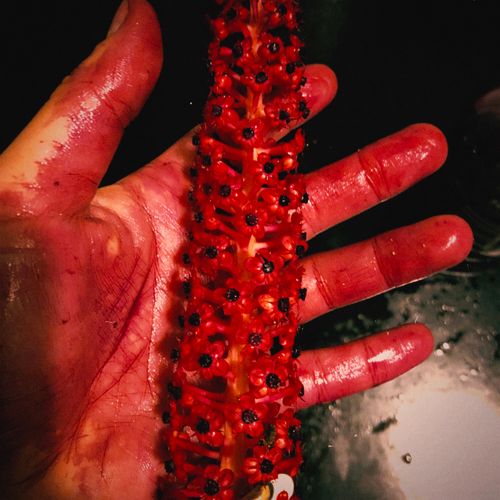
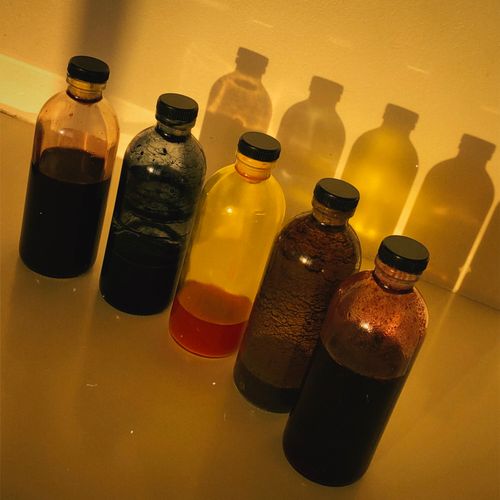
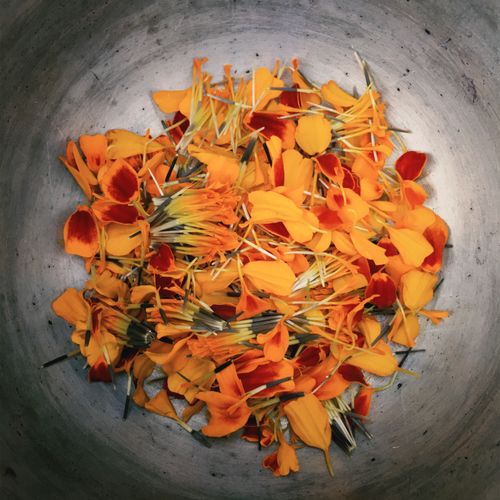
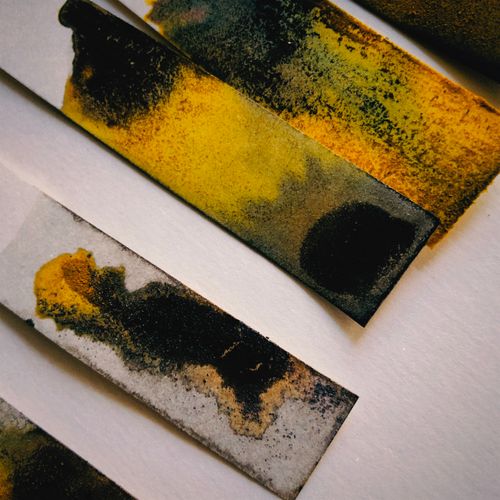
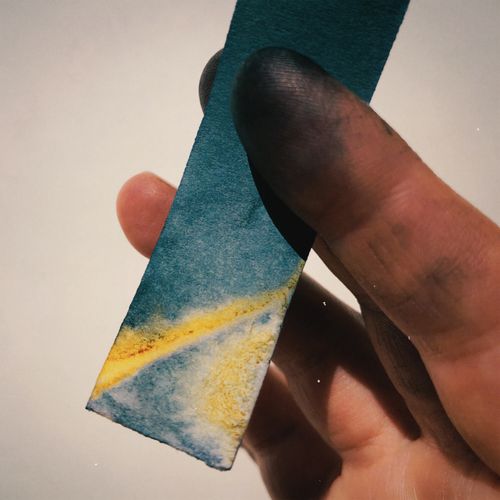
-p-500.jpg)
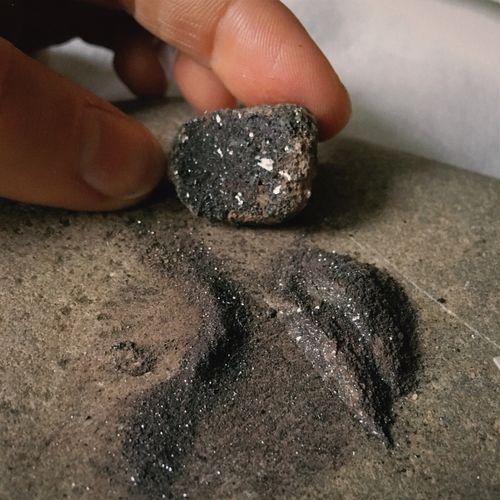
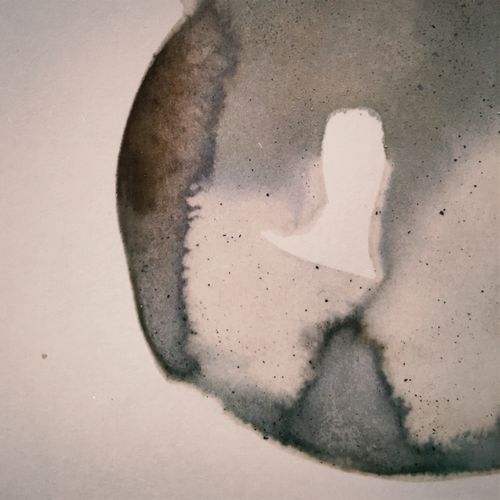
.jpg)
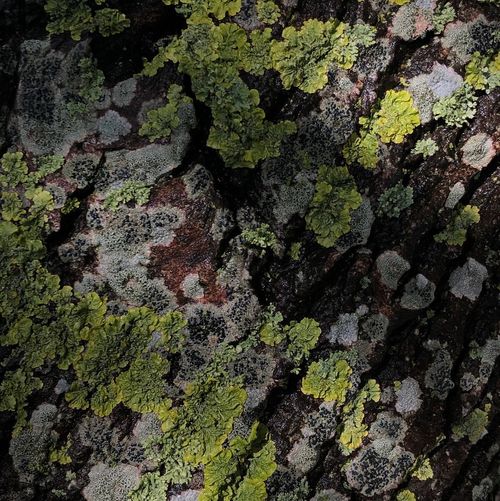
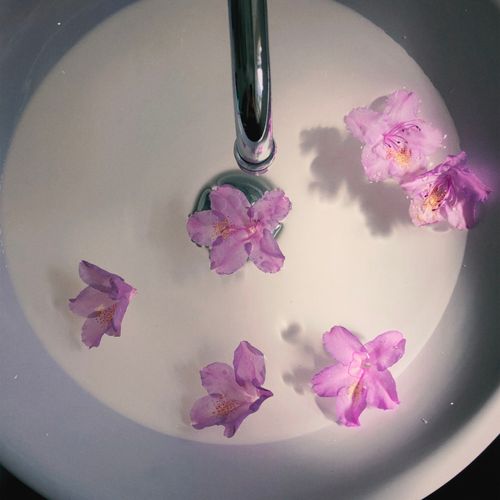
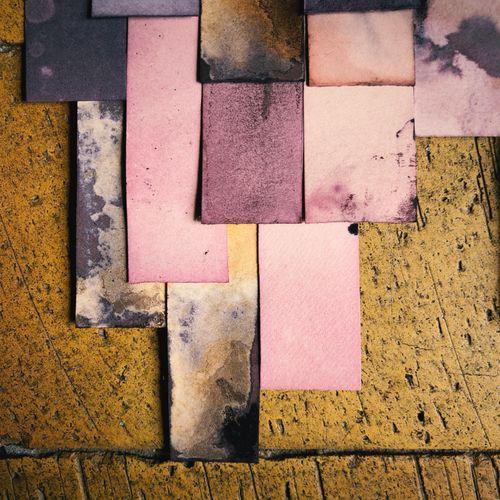
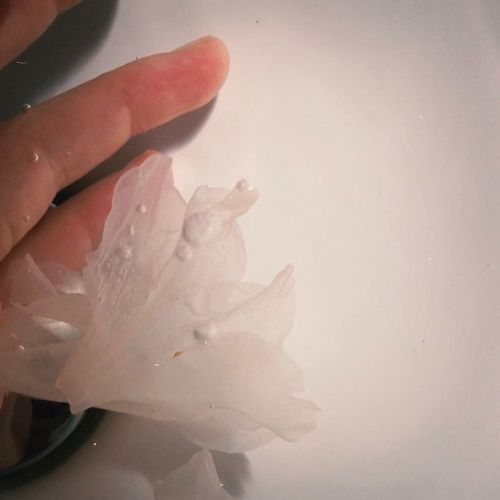
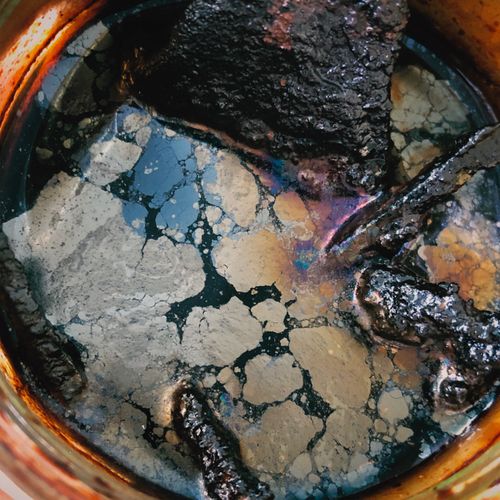
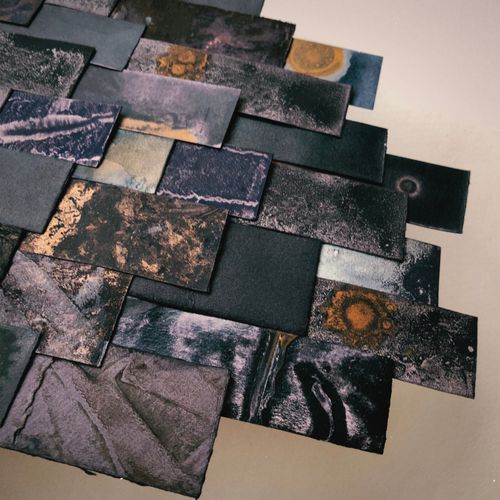


.jpg)



